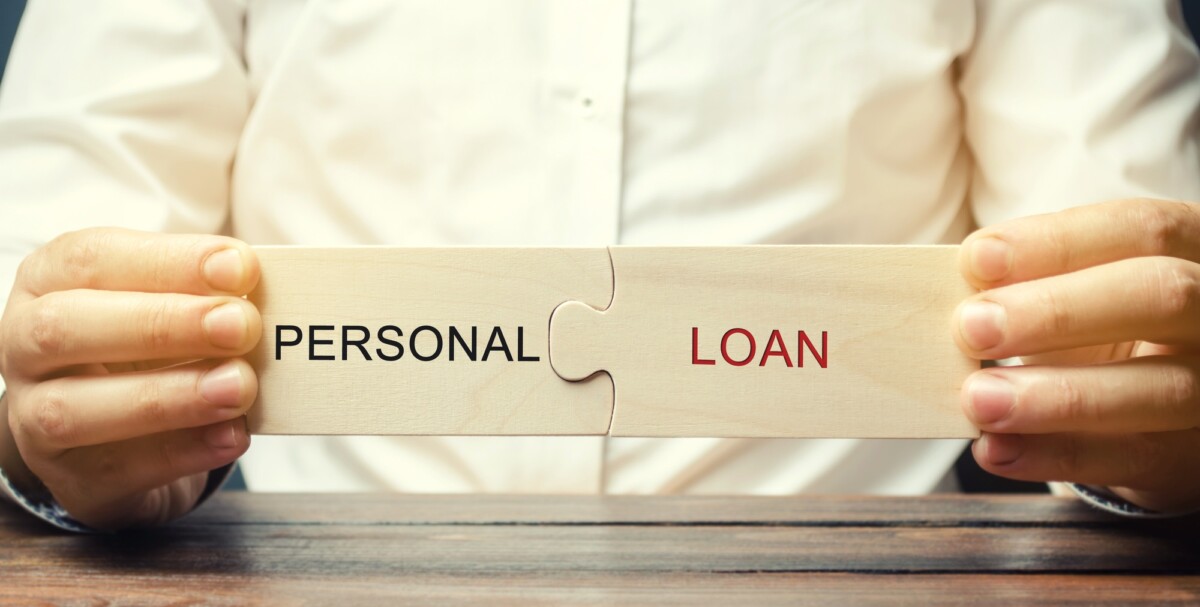Understanding the Basics: What is Legal Debt Settlement?
Are you drowning in debt and seeking a way out? The idea of legal debt settlement might just be the lifeline you need. This process can significantly reduce your debt, allowing you to regain financial stability. But how do you qualify for legal debt settlement? Let’s dive into the eligibility checklist to see if this option is right for you.
To qualify for legal debt settlement, you must first understand the basics. Legal debt settlement involves negotiating with creditors to pay a reduced amount of your total debt. This option is typically available to those who are experiencing genuine financial hardship. If you’re unable to meet your monthly payments and have a substantial amount of unsecured debt, you might be eligible.
Key Eligibility Criteria:
- Financial Hardship: Demonstrating a significant change in your financial situation, such as job loss or medical expenses.
- Unsecured Debt: Having a considerable amount of unsecured debt, like credit card debt or personal loans.
- Inability to Pay: Showing that you cannot realistically pay off your debts in full.
Once you’ve determined that you meet the basic criteria, it’s crucial to gather the necessary documentation. This includes proof of income, a list of your debts, and any correspondence with creditors. By organizing these documents, you can streamline the settlement process. Remember, while legal debt settlement can offer relief, it’s essential to weigh the pros and cons and consider seeking advice from a financial advisor to ensure it’s the best path for your situation.
Are You Eligible? Key Criteria for Qualifying for Legal Debt Settlement
Are you drowning in debt and seeking relief? Understanding how to qualify for legal debt settlement can be your lifeline. Many people face overwhelming financial burdens, but not everyone knows the steps to take towards resolution. By following an eligibility checklist, you can determine if debt settlement is a viable option for you, promising a path to financial freedom and peace of mind.
Financial Hardship
To qualify for legal debt settlement, demonstrating genuine financial hardship is crucial. This typically means showing that your income is insufficient to cover your debts and living expenses. Common indicators include job loss, medical emergencies, or unexpected expenses. Lenders need to see that you are unable to meet your financial obligations, making settlement a reasonable solution.
Debt Type and Amount Not all debts are eligible for settlement.
Generally, unsecured debts like credit card balances, medical bills, and personal loans qualify. Additionally, having a significant amount of debt, usually over $7,500, increases your chances of qualifying. It’s essential to review your debts and ensure they meet these criteria before pursuing settlement options.
Assessing Your Financial Situation: Do You Meet the Requirements?
Are you feeling overwhelmed by debt and wondering how to qualify for legal debt settlement? You’re not alone. Many individuals find themselves in a similar predicament, seeking a way to regain financial stability. The good news is that debt settlement can offer a viable solution, but it requires meeting specific eligibility criteria. Understanding these requirements is the first step toward achieving financial relief and peace of mind.
To determine if you qualify for legal debt settlement, start by assessing your financial situation.
Evaluate Your Debt Load: Ensure your unsecured debts, such as credit card balances or medical bills, are substantial enough to warrant settlement.
Review Your Income: Confirm that your income is insufficient to cover your debts, making settlement a more feasible option than repayment.
Consider Your Financial Hardship: Document any significant financial hardships, like job loss or medical emergencies, that impact your ability to pay.
By thoroughly examining these factors, you can better understand your eligibility and take informed steps toward resolving your debt challenges.

Ready to connect with top legal professionals? Get immediate support— Call us at 877-550-8911.
Connect with Our Legal Team
Exploring Debt Types: Which Debts Can Be Settled Legally?
Navigating the world of debt settlement can be daunting, but understanding which debts qualify for settlement is a crucial first step. If you’re wondering how to qualify for legal debt settlement, the eligibility checklist begins with identifying the types of debts you can legally settle. Not all debts are created equal, and knowing which ones can be negotiated can save you time and stress. Let’s dive into the specifics of which debts are typically eligible for settlement and how you can leverage this knowledge to regain financial control.
Types of Debts Eligible for Settlement
- Unsecured Debts: These include credit card debts, medical bills, and personal loans. Since they are not tied to any collateral, they are often the primary focus for settlement.
- Business Debts: If you own a business, certain unsecured business debts may also qualify.
Debts Typically Not Eligible
- Secured Debts: Mortgages and car loans, which are backed by collateral, usually do not qualify for settlement.
- Federal Student Loans: These are often excluded from settlement options due to government regulations.
Understanding these distinctions is essential as you explore how to qualify for legal debt settlement. By focusing on the right types of debts, you can streamline your efforts and work towards a more manageable financial future.
How to Qualify for Legal Debt Settlement: Steps to Take Before Applying
Are you feeling overwhelmed by mounting debts and wondering how to qualify for legal debt settlement? You’re not alone. Many people find themselves in similar situations, seeking a way out of financial stress. The good news is that debt settlement can offer a viable solution, but it’s crucial to understand the eligibility requirements before diving in.
By following a structured checklist, you can determine if this option is right for you and take the necessary steps to regain financial stability.
Assess Your Financial Situation
Before applying for debt settlement, it’s essential to have a clear picture of your financial health. Start by listing all your debts, including credit cards, personal loans, and any other outstanding obligations. Calculate your total debt and compare it to your income and expenses.
This will help you understand if debt settlement is a feasible option and prepare you for discussions with potential settlement companies.
Evaluate Your Debt
Types Not all debts qualify for settlement, so it’s important to know which ones do. Typically, unsecured debts like credit card balances and medical bills are eligible, while secured debts such as mortgages and car loans are not. Understanding the types of debt you have will guide your decision-making process and ensure you’re on the right path to qualifying for legal debt settlement.
Common Mistakes to Avoid When Seeking Legal Debt Settlement
Navigating the path of how to qualify for legal debt settlement can be tricky, but avoiding common pitfalls can make the journey smoother. Many individuals, eager to resolve their financial burdens, often rush into agreements without fully understanding the eligibility checklist. This can lead to unfavorable outcomes, such as not meeting the necessary criteria or choosing the wrong settlement option. By being aware of these common mistakes, you can confidently move forward, ensuring a more successful debt settlement process.
Overlooking Eligibility Requirements
One of the most frequent mistakes is not thoroughly reviewing the eligibility checklist. Each debt settlement program has specific criteria, such as the amount of debt, type of debt, and financial hardship documentation. Failing to meet these requirements can result in rejection or delays. Therefore, it’s crucial to carefully assess your financial situation and ensure you align with the program’s prerequisites before proceeding.
Ignoring Professional Advice
Another common error is neglecting to seek professional guidance. Legal debt settlement involves complex legal and financial considerations that can be overwhelming. Consulting with a financial advisor or a debt settlement attorney can provide valuable insights and help you avoid costly mistakes. Their expertise can guide you through the process, ensuring you meet all necessary qualifications and make informed decisions.
How LegalCaseReview Can Help You Qualify for Legal Debt Settlement
Are you feeling overwhelmed by mounting debts and unsure of where to turn? Understanding how to qualify for legal debt settlement can be your first step towards financial freedom. At
LegalCaseReview, we promise to guide you through the eligibility checklist, ensuring you have the best chance of settling your debts legally and effectively.
Eligibility Checklist for Legal Debt Settlement
To qualify for legal debt settlement, you need to meet certain criteria. First, assess your debt situation: Are your debts unsecured, such as credit card or medical bills?
Secured debts like mortgages typically don’t qualify. Next, evaluate your financial hardship. Demonstrating a genuine inability to meet your debt obligations is crucial. Finally, consider your willingness to negotiate. Successful settlements often require a proactive approach and a commitment to working with creditors.
LegalCaseReview offers personalized assistance to help you navigate the complexities of debt settlement. Our experts will review your financial situation, ensuring you meet the necessary criteria. We also provide resources and support to help you communicate effectively with creditors, increasing your chances of a favorable settlement. Let us be your partner in achieving a debt-free future.
What to Expect After Qualifying: Navigating the Debt Settlement Process
Congratulations on taking the first step towards financial freedom by learning how to qualify for legal debt settlement! Now that you’ve checked off the eligibility checklist, you might be wondering what comes next. The debt settlement process can seem daunting, but understanding each stage can help you navigate it with confidence and ease. Once you qualify, the journey begins with selecting a reputable debt settlement company. This partner will negotiate with your creditors on your behalf, aiming to reduce the total amount you owe.
Here’s what you can expect:
- Initial Consultation: Discuss your financial situation and goals.
- Negotiation Phase: The company negotiates with creditors to lower your debt.
- Settlement Agreement: Review and approve the proposed settlement terms.
Throughout this process, maintaining open communication with your debt settlement company is crucial. They will guide you through each step, ensuring you understand your rights and obligations. Remember, patience is key, as settlements can take time to finalize. By staying informed and proactive, you can successfully navigate the debt settlement process and move closer to achieving financial stability.
Don’t wait to secure the legal representation you deserve. Visit Legal Case Review today for free quotes and tailored guidance, or call 877-550-8911 for immediate assistance.
You can visit
TheLawyerDirectory to find the best Lawyer.




